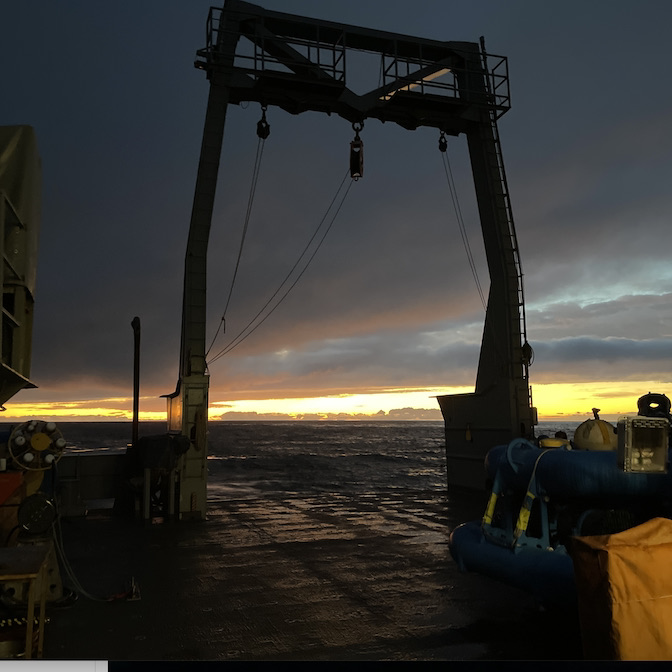Why It Matters
By Darlene Trew Crist

As we steam towards the Oregon coast, I thought it might be helpful to share my perspective of all of the hard work that has occurred over the past eight days at sea and why it matters. Twelve adults of various ages and genders, who comprise the Endurance 17 Team, worked extremely hard during this time at sea. They lugged heavy stretch hoses, wrapped and unwrapped multiple tag lines, operated heavy winches and air tuggers, and ultimately scraped and steamed clean stinky marine life that had chosen to call parts of the moorings home over the six months in the water. The humor on the back deck matched the hard work. I came to realize that the humor was necessary to keep the spirits light as the loads got heavier and the energy lagged.
So, now that we have a chance to regroup as we head back to shore, I thought I’d share my view on why this work is so important, and ultimately of value to the planet. In short, scientists need data, long-term data, to better understand ocean processes and how ecosystems within it might change over time. This understanding has broad implications for fisheries, ecosystem health, prediction of weather and storm intensities, and, perhaps most importantly, delineating how the ocean is changing, how it might continue to change, and how we might prepare for what that future may bring.
The infrastructure that makes this data gathering possible was launched in 2014 so OOI now has provided nearly eight years of continuous ocean data that scientists around the globe are using. This plethora of data makes it possible for scientists to identify both short-term occurrences and long-term trends. It’s critical that we have such data so we can address the changing ocean from a factual perspective.
The men and women of Endurance 17 through their expertise and knowledge, coupled with their brute strength on the back of the ship, are contributing to the warehouse of data that makes scientific findings and understanding of the ocean possible. For that they should be commended, and for the data we should be grateful.